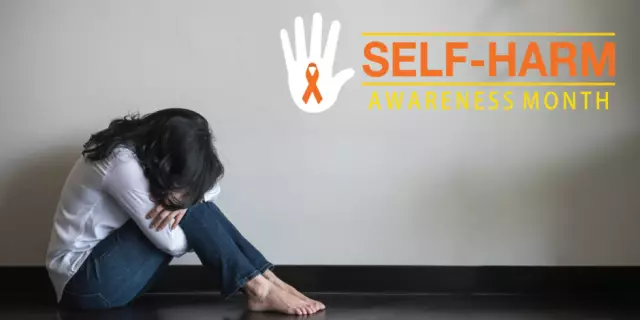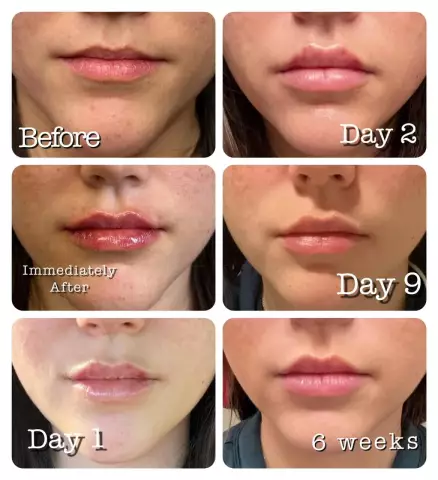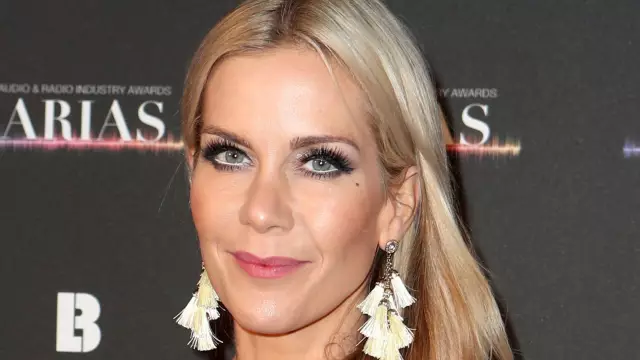- Author Rachel Wainwright wainwright@abchealthonline.com.
- Public 2023-12-15 07:39.
- Last modified 2025-11-02 20:14.
Child and sport: how not to harm health
A healthy lifestyle is in vogue today, and many parents strive to ensure that their child goes in for sports from an early age. After all, training will help him become strong and enduring, improve coordination of movements, and have a positive effect on the psyche: he will become more collected and purposeful …

Source: depositphotos.com
This is certainly true, but it should be borne in mind that modern children are not so healthy from the start. When deciding on the type of sport and the intensity of training, it is necessary to weigh the pros and cons and undergo a full medical examination with the child. For a number of sports there are absolute and relative contraindications for health, and such information cannot be neglected.
At what age is it better to start classes?
Usually, parents start looking for suitable workouts when the baby is 3-4 years old. The choice of activities at this age is limited: most sports clubs recruit children aged 5-6 years or even older.
The fact is that it is still difficult for babies to follow the instructions of the coach, and their musculo-ligamentous apparatus is not yet adapted to sports loads. Even if you find a section where very young children are accepted, then for the first year or two they will be engaged in gymnastics and outdoor games there. The time for serious training will come later.
Swimming, gymnastics, and special children's fitness are most useful for babies. Such exercises will increase immunity, strengthen the spine, muscles and ligaments of the child and allow you to prepare for future workouts. And already at this age, one can evaluate his propensity for certain sports activities. Observe: what does he like better - team games, ball games, dance exercises? What exercises does he do best?
Sports for boys
All boys, without exception, love to play football and hockey. However, there are contraindications to these sports, and there are many of them. Football and hockey are very traumatic sports associated with falls and blows, heavy loads. Therefore, before signing up for the section, it is necessary to check the baby's heart and nervous system, vision and nasal breathing. Progressive myopia is an absolute contraindication, and bad nasal breathing will create certain difficulties. If a child has problems with the musculoskeletal system (MSA), doctors may also prohibit such training.
Gymnastics is another extremely popular sport for boys, but even here poor eyesight, problems with ODA and some diseases of the cardiovascular system can become an obstacle to exercise.
Martial arts sections are represented in sports schools today quite widely, the choice is large. Parents who are not versed in the directions of martial arts need to talk with the coaches about what is better to choose if the child has health contraindications. Usually, you can choose a suitable option: if strikes and falls are prohibited, you should give the baby to wushu, and not to karate.
Winter sports, such as alpine skiing, are good because they increase resistance to respiratory diseases. However, chronic bronchitis or asthma can worsen with exertion. In this case, it is reasonable to give preference to less intense activities - for example, cross-country skiing, rather than alpine skiing.
Choleric children find it difficult to engage in sports that require a lot of concentration, for example, shooting. But phlegmatic people will just like it.
Sports for girls
Beautiful dresses, graceful gait, the opportunity to dance - perhaps any girl will not mind ballroom dancing, rhythmic gymnastics, ballet or figure skating. But the load in different sports is different, and parents should understand this.
There is one more nuance that many parents do not take into account. If a girl is overweight, it will be problematic for her to play sports, but ridicule in the team is inevitable. Therefore, you do not need to rely on sports as a panacea for obesity: it is better to first achieve good physical shape with the help of simple gymnastics and a diet and only then look for a suitable section.
As in the case of boys, cardiovascular and neurological diseases, myopia in girls often become a contraindication to professional sports. However, you can practice ballroom dancing.
Girls are quite suitable not only for the classic "female" sports, but also many others - including martial arts, horse riding.

Source: depositphotos.com
Sports or physical education?
Parents of children with frequent illnesses, children with health problems know that the pediatrician indicates the child's health group in the medical record. However, few schools have the opportunity to organize education taking into account the different health groups of students. Therefore, usually weakened children study together with everyone, but at reduced standards.
Poor health is a contraindication to serious sports, but not at all a reason to give up physical education. Moreover, exercise therapy and swimming in many cases can improve the health of the child. But parents should carefully study what loads are permissible for him, and it is important for the coach to control the pulse and breathing of children during training.
Which doctors to visit?
A pediatrician, cardiologist, neuropathologist and ophthalmologist is a must-have program for every kid before signing up for the sports section. It is necessary to undergo a cardiogram, pass general blood and urine tests. Sometimes additional consultations are required - for example, with an ENT, pulmonologist, surgeon, dermatologist. Do not neglect this: a sport that is not suitable for a child may have not positive, but negative health effects!
YouTube video related to the article:

Maria Kulkes Medical journalist About the author
Education: First Moscow State Medical University named after I. M. Sechenov, specialty "General Medicine".
Found a mistake in the text? Select it and press Ctrl + Enter.






